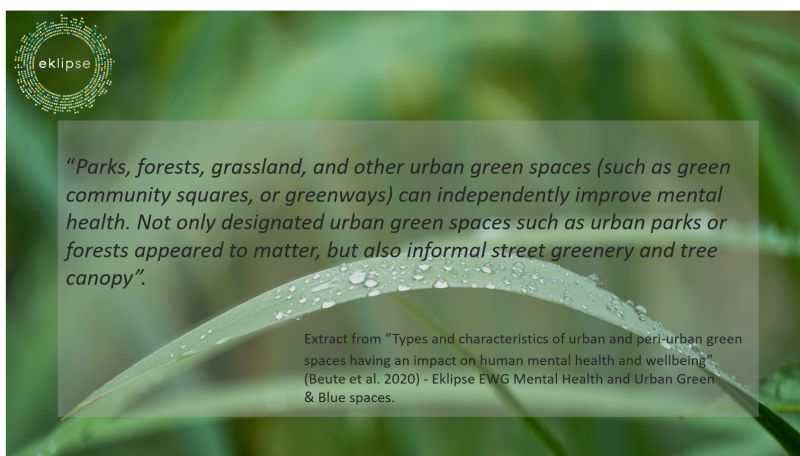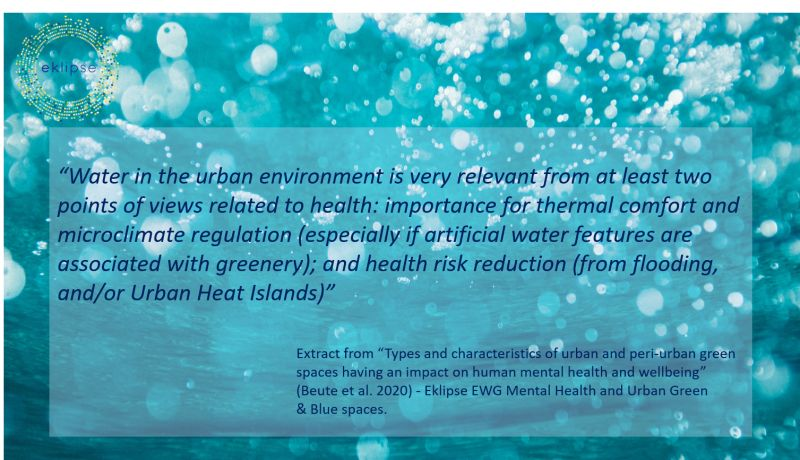The GreenME project will study how exposure to nature can be integrated in healthcare systems to treat and improve mental health for all.
It officially launched its ambitious initiative at the Kick-off meeting held in Barcelona from January 29th to 31st, 2024. Hosted by the Open University of Catalunya (UOC) and
coordinated by the Universitat Autònoma de Barcelona (UAB), the event brought together over 60 consortium members, including the esteemed Advisory Board members, the European Commission’s
project officer Patrizia Tenerelli, and researchers from sister projects (RESONATE and NATURELAB).
During this three-day event, participants had the opportunity to get to know each other and the passion that drives them, while visualising the unique contributions they will make to the project over the next
four years.

Researchers, therapy providers, and municipalities representatives worked together to address the challenges of the project via an insightful collective hands-on exercise, listing burning questions and
providing answers leading to a half-day exchange to identify ways forward. In between sessions, the participants recharged their minds and bodies with walks in nearby parks, mindfulness exercises, and a mandala-making outdoor activity, concretely experiencing how nature benefits mental health. Fun activities engaged the lively consortium; participants were asked to find clever solutions to build Kapla structures using just one finger or to tell their stories through a photographic language exercise!
This Kick-off meeting saw the robust collaboration and exchange of ideas with sister projects RESONATE and NatureLAB, operating under the overarching theme of mental health, nature, and sustainability. The anticipated collaboration is poised to drive forward pioneering research and foster transformative outcomes within the realm of nature-health interactions. Moreover, the Research Synergies workshop held during the Kick-off meeting facilitated dynamic exchanges with researchers from other scientific projects, including BlueHealth, GoGreenRoutes, Dr. FOREST, and PHENOTYPE. By fostering interdisciplinary collaboration, GreenME aims to accelerate progress towards building just resilient and sustainable healthy communities.
A core tenet of the GreenME initiative is the empowerment of green care actors and stakeholders. Recognizing the pivotal role of community involvement in shaping sustainable healthcare solutions, GreenME is committed to actively engaging with and empowering stakeholders throughout the project lifecycle. By fostering partnerships and amplifying the voices of green care advocates, GreenME seeks to cultivate a more inclusive and impactful approach to mental health and well-being. As GreenME embarks on this transformative journey, the consortium is poised to drive forward cutting-edge research, innovation, and collaboration to advance the understanding and integration of nature-based interventions in mental healthcare.

The GreenME Consortium:
In a trans-disciplinary partnership, GreenME involves six European countries, together with the UK
and theUS. GreenME is led by the Autonomous University of Barcelona (UAB – Barcelona, Spain) and
the GreenME consortium is composed of:
- University of Bologna (Bologna, Italy),
- Swedish University of Agricultural Sciences (Sveriges Lantbruksuniversitet - Uppsala, Sweden),
- ILS Research (Research Institute for Regional and Urban Development - Dortmund, Germany),
- Warsaw University of Life Sciences (SGGW – Warsaw, Poland),
- Open University of Barcelona (UOC – Barcelona, Spain),
- Old-Continent (Brussels, Belgium),
- NeuroLandscape Foundation (Warsaw, Poland),
- Gesellschaft für Gartenbau und Therapie (GGuT – Hückeswagen, Germany),
- Institute of Psychiatry and Neurology (IPIN – Warsaw, Poland),
- Scandinavian Nature and Forest Therapy Institute & SHINRIN-YOKU (Stockholm, Sweden),
- Eta Beta Cooperativa Sociale (Bologna, Italy),
- City of Herne (Herne,Germany),
- Spanish Association of Horticulture and Social and TherapeuticGardening (AEHJST – Madrid, Spain),
- University of Kent (Kent, UK),
- University of Salford (Salford, UK),
- Social Farms and Gardens (Bristol, UK) and
- Mind in Bexley and East Kent LTD (London, UK),
- The US partner is Oregon Health & Science University Portland State University School of Public Health (OHSU-PSU — Portland, Oregon).
The project will last 4 years and is funded by the Horizon Europe research and innovation programme of the European Union.

For more information about GreenME and its initiatives, please visit https://greenme-project.eu
X
LinkedIn
Facebook
Instagram





















